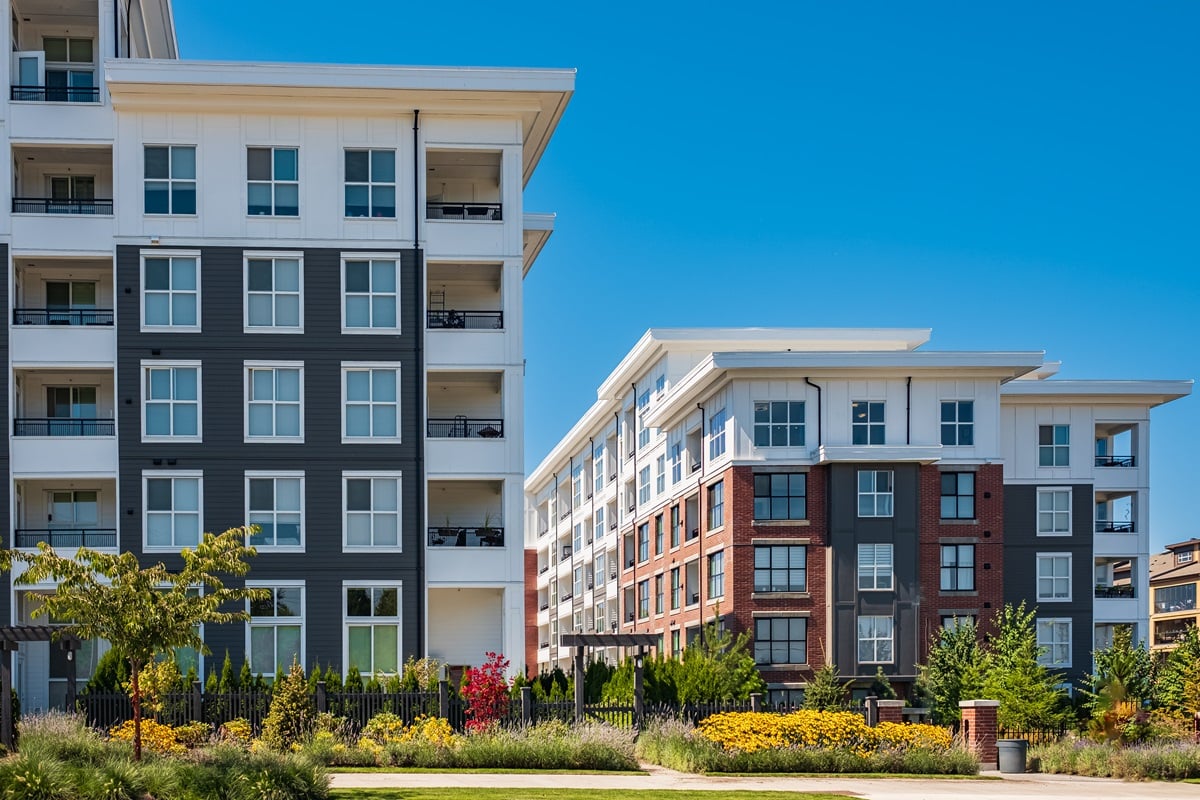When living in a condominium, the unique structure of ownership and shared responsibilities between unit owners and the homeowner’s association (HOA) necessitates a specialized form of insurance known as condo insurance. Among the various protections it offers, one critical feature is loss assessment coverage, which can significantly impact your financial well-being following unforeseen events affecting the common areas or the building’s structure.
How Loss Assessment Coverage Works
Loss assessment coverage is designed to shield condo owners from significant financial burdens when unexpected expenses arise that the HOA’s master policy doesn’t fully cover. These situations often involve damages to shared areas like lobbies, pools, and gardens or liability claims that exceed the HOA’s coverage limits.
When incidents occur where the damages exceed the master policy’s coverage, the remaining costs might be divided among the unit owners in the form of a special assessment. Without loss assessment coverage as part of your condo insurance, you could be paying out of pocket for your share of these costs.
Key Scenarios for Loss Assessment Coverage
- Natural Disasters: If a natural disaster damages the common areas and the repair costs overshoot the HOA’s master policy limits, loss assessment coverage can help pay your share of the remaining costs.
- Liability Claims: Should someone get injured in a shared area and the medical bills or legal costs surpass the association’s liability coverage, you might be assessed a portion of these expenses. Your loss assessment coverage can assist in covering these costs.
- High Deductibles: In cases where the HOA’s policy has a high deductible, unit owners might be assessed to cover a portion of the deductible for a covered claim. Loss assessment coverage can alleviate this financial burden.

Instant. Simple. Smart We Make Insurance Easy
Instant. Simple. Smart
We Make Insurance Easy
Find Out How Much You Can Save Today

Take the first step towards peace of mind with LoPriore’s team. Experience tailored insurance solutions that fit your lifestyle and budget. Get your free, no-obligation quote today and see the difference expertise makes!
How Much Loss Assessment Coverage You Need
Determining the right amount of loss assessment coverage requires understanding the potential risks and the HOA’s master policy’s coverage limits and deductibles. It’s a balance between having enough coverage to protect against significant assessments and not overpaying for unnecessary protection.
What is not covered in Loss Assessment Coverage
While loss assessment coverage is broad, it doesn’t cover everything. Typically, it won’t cover assessments related to non-covered perils, maintenance, or cosmetic improvements. It’s also important to note that loss assessment coverage applies to the condo owner’s portion of assessments related to the building and common areas, not personal property within the unit.
Key Importance of Loss Assessment Coverage
For condo owners, this coverage is an essential layer of financial protection. Without it, you could face substantial out-of-pocket expenses to cover your share of assessments for damage repairs or liability claims that exceed the HOA’s master insurance limits.
Buying Tips for Loss Assessment Coverage
When purchasing loss assessment coverage, review your HOA’s master policy to understand its coverage limits and deductibles. Consider the value of shared areas and potential liability exposures to decide how much coverage you need. It’s also crucial to read the fine print of your condo insurance policy to understand what’s covered and what’s excluded.
Cost Implications and Consequences of Not Having Coverage
The cost of adding loss assessment coverage to your condo insurance policy is generally modest compared to the financial protection it offers. Without this coverage, you risk having to pay significant amounts out of pocket for your share of assessments following a covered event.
Understanding the Difference: Loss Assessment Coverage vs. Special Assessments in Condominiums
When navigating the complexities of condominium insurance, it’s crucial to differentiate between two terms that often cause confusion: “loss assessment coverage” and “special assessments.” While they are interconnected, understanding their distinct roles is essential for condo owners to ensure adequate financial protection and preparedness.
Special Assessments in Condominiums
Special assessments are charges levied by a condominium association or homeowners’ association (HOA) against individual unit owners. These assessments are typically imposed to cover significant expenses that exceed the association’s budget or reserve funds. Reasons for special assessments can include:
- Repairs and Replacements: Addressing damage to common areas or shared property, such as roofs, elevators, or swimming pools, that are beyond normal wear and tear.
- Emergency Expenses: Unforeseen costs arising from natural disasters, vandalism, or other unexpected events causing damage to the condominium’s communal spaces.
- Legal Liabilities: Costs associated with legal actions against the association, where existing funds and insurance may not fully cover settlements or legal fees.
- Capital Improvements: Funding for major upgrades or additions to the condominium’s facilities that enhance property value but are not covered by the regular budget.
Loss Assessment Coverage
Loss assessment coverage, on the other hand, is an integral feature of an individual condo owner’s insurance policy. This coverage is specifically designed to protect condo owners from the financial burden of special assessments under certain conditions. Here’s how it works:
- Coverage Scope: Loss assessment coverage steps in to cover the policyholder’s share of special assessments levied by the condo association for covered losses or liabilities. This typically includes damage to common areas or shared property from perils covered under the policy, such as fire, storm damage, or certain liability claims against the association.
- Financial Protection: It provides financial relief by covering the portion of the special assessment that corresponds to covered events up to the limits of the individual’s loss assessment coverage.
- Limitations and Exclusions: It’s important to note that loss assessment coverage does not cover all types of special assessments. For example, assessments for cosmetic upgrades, routine maintenance, or the association’s underfunded reserves are generally not covered.
Key Differences and Considerations
The primary distinction between loss assessment coverage and special assessments lies in their nature and purpose. Special assessments are charges imposed by the association to address specific financial needs or liabilities, whereas loss assessment coverage is an insurance protection that helps condo owners pay for their share of certain types of special assessments without dipping into personal savings.
Understanding these differences is vital when evaluating condo owners’ insurance needs. It ensures that they are adequately protected against potential financial impacts of special assessments related to covered perils or liabilities. Condo owners should carefully review their insurance policies and consult with insurance professionals to clarify coverage specifics, including any limitations or exclusions that might affect their protection against special assessments.
Real-World Applications of Loss Assessment Coverage
Loss assessment coverage in condo insurance plays a critical role in protecting unit owners from unexpected financial burdens related to shared property or liability claims within their condo community. Here are a couple of illustrative examples to demonstrate how loss assessment coverage works:
Example 1: Severe Weather Damage to Common Areas
Imagine a powerful storm sweeping through your area, causing significant damage to the condominium’s shared amenities, such as the swimming pool, clubhouse, and landscaping. The total cost to repair these damages amounts to $100,000. However, the condo association’s master policy has a coverage limit of $80,000 for such damages, leaving a shortfall of $20,000.
To cover this remaining amount, the condo association decides to levy a special assessment of $2,000 on each of the 10 unit owners. If you have loss assessment coverage as part of your condo insurance policy, and your coverage limit is sufficient, it can help pay for your share of this assessment, thereby mitigating the financial impact on you.
Example 2: Liability Claim Exceeds Master Policy Limits
Consider a scenario where a visitor slips and falls in the condo complex’s common area, sustaining serious injuries that require costly medical treatment. The visitor decides to sue the condo association, resulting in a liability claim of $500,000. The condo association’s master insurance policy has a liability coverage limit of $400,000, creating a shortfall of $100,000.
To address this deficit, the condo association assesses each of the 25 unit owners $4,000 to cover the remaining costs associated with the claim. If you have loss assessment coverage included in your individual condo insurance policy, it can help you avoid paying out of pocket by covering this assessed amount up to the limits of your coverage.
In both examples, loss assessment coverage provides a safety net for condo owners, ensuring that they are not left financially exposed when unforeseen events result in costs that exceed the condo association’s master policy limits. This coverage is an essential aspect of condo insurance, offering peace of mind and financial protection against potential assessments.
Don’t get caught off guard by special assessments. Find out how Loss Assessment Coverage helps!
Loss Assessment Coverage: Frequently Asked Questions
What Exactly Does Loss Assessment Coverage Include?
Loss assessment coverage is designed to protect condo owners from the financial burden of certain types of special assessments levied by their condominium association. These assessments are typically made to cover the costs of damage to common areas or shared property that exceed the association’s master insurance policy limits or to cover the association’s deductibles. The coverage includes damage from covered perils such as fires, storms, and certain types of liability claims against the association.
Is Loss Assessment Coverage Automatically Included in My Condo Insurance Policy?
While many condo insurance policies include loss assessment coverage, it is not universally automatic and the coverage limits can vary significantly. It’s crucial to review your policy details or speak with your insurance provider to understand if loss assessment coverage is included, and if so, what the coverage limits are and what types of assessments it covers.
How Do I Determine the Right Amount of Loss Assessment Coverage?
Deciding on the appropriate amount of loss assessment coverage involves considering several factors, including the potential risks to your condominium complex, the coverage limits and deductibles of your association’s master policy, and the value of the shared property and amenities. Consulting with an insurance professional can help you evaluate these factors and decide on a coverage amount that provides adequate protection without being excessive.
Are There Any Types of Assessments Not Covered by Loss Assessment Coverage?
Yes, there are exclusions. Loss assessment coverage typically does not cover assessments related to non-insured events, such as maintenance or cosmetic improvements to the condominium complex. It also usually excludes assessments levied to replenish the association’s reserve fund or for improvements that increase the value of the common property rather than repair damage.
What Happens If I Don’t Have Loss Assessment Coverage and My Association Levies an Assessment?
If you do not have loss assessment coverage and your condominium association levies an assessment for a covered loss or liability, you would be responsible for paying your share of the assessment out of pocket. This could be financially challenging, especially if the assessment is significant. Therefore, having loss assessment coverage as part of your condo insurance can provide valuable financial protection and peace of mind.
Don't Wait for the Unexpected
Call Us Today to Insure Your Home!
Life is full of surprises, but your home’s safety shouldn’t be one of them. With our reliable homeowners insurance, you’re prepared for whatever comes your way. Take action today to defend your haven against the unexpected.


